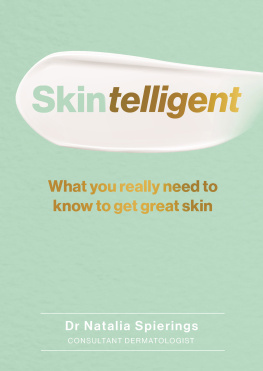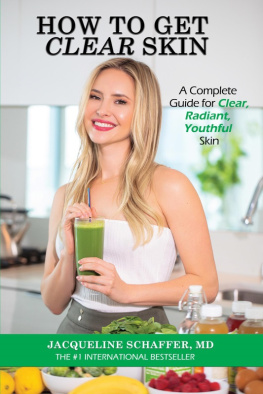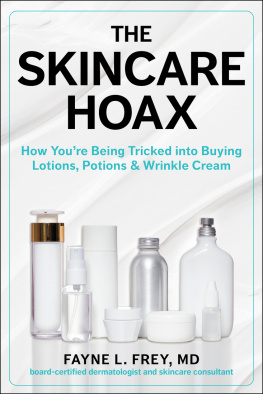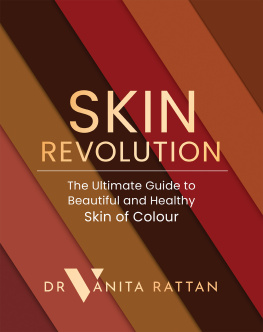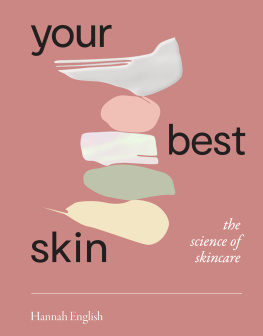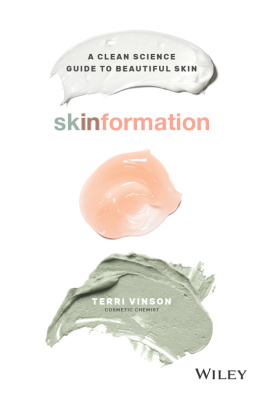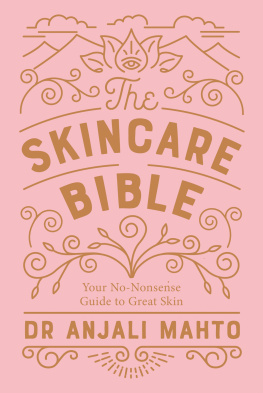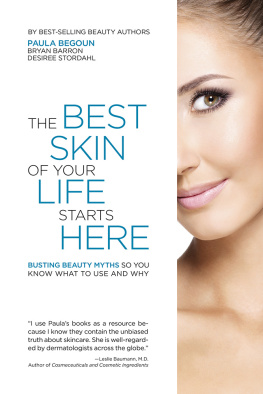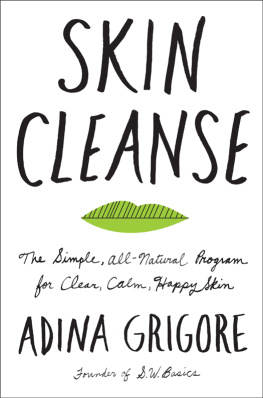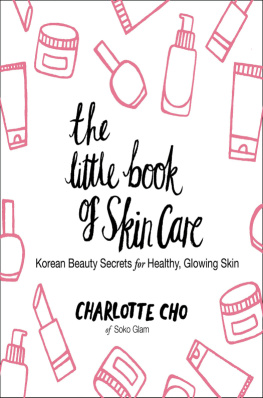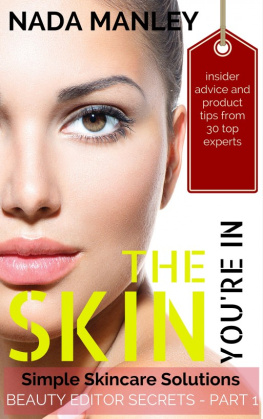About the Author
Dr Natalia Spierings, BSc MBBS MRCP(UK) MRCP(Derm) MBA MSc, is a UK-trained Consultant Dermatologist, having done her medical, junior doctor and dermatology training at St Georges, University of London. As well as having a masters degree in aesthetic medicine from Queen Mary, University of London, Dr Spierings has completed a fellowship in Mohs Micrographic and Dermatological Surgery at the Royal Victoria Infirmary in Newcastle and her subspeciality area of expertise is the diagnosis and management of skin cancer as well as skin surgery. You can see her in action on Channel 5s Skin A&E, now in its third season. When she is not seeing patients or providing evidence-based skincare advice on social media, you can find her lifting weights in the gym.
To my parents, Maria and Egilius Spierings
Dr Natalia Spierings
Consultant Dermatologist
SKINTELLIGENT
What you really need to know to get great skin

EBURY
UK | USA | Canada | Ireland | Australia
New Zealand | India | South Africa
Ebury is part of the Penguin Random House group of companies whose addresses can be found at global.penguinrandomhouse.com.

First published by Vermilion in 2022
Copyright Dr Natalia Spierings, 2022
Illustrations copyright Charlotte Willcox, 2022
The moral right of the author has been asserted
Cover design Nic&Lou
ISBN: 978-1-529-19232-2
The information in this book has been compiled by way of general guidance in relation to the specific subjects addressed, but is not a substitute and not to be relied on for medical, healthcare, pharmaceutical or other professional advice on specific circumstances and in specific locations. So far as the author is aware the information given is correct and up to date as at March 2022. Practice, laws and regulations all change, and the reader should obtain up-to-date professional advice on any such issues. The author and publishers disclaim, as far as the law allows, any liability arising directly or indirectly from the use, or misuse, of the information contained in this book.
This ebook is copyright material and must not be copied, reproduced, transferred, distributed, leased, licensed or publicly performed or used in any way except as specifically permitted in writing by the publishers, as allowed under the terms and conditions under which it was purchased or as strictly permitted by applicable copyright law. Any unauthorized distribution or use of this text may be a direct infringement of the authors and publishers rights and those responsible may be liable in law accordingly.
Introduction
This is not a book about what the best or worst skincare brands are. I am not going to tell you to double cleanse, use a toner, exfoliate and moisturise twice a day (oh, and dont forget the eye cream, of course!). There are no lists of brand and product recommendations at the end of each chapter or complicated, detailed skincare routines.
What I will do is present you with the science and the evidence (and critically appraise it), as well as the history behind the concept of skincare in its modern iteration, giving you all the information you need to get the right treatment for the most common facial skin problems from pimples and pigmentation to wrinkles and oily skin.
The bottom line and what I will emphasise throughout this book is that facial skin health and disease is very much a medical problem, not merely a cosmetic issue. And 99 per cent of skincare products should be viewed as luxury goods, not necessities (as you will soon discover, there is no such thing as essential skincare). After all, the skin is an organ and has many important functions aside from helping us look good (or sometimes bad, if skin disease isnt managed well). As a society we need to stop taking our skincare advice from people whose motives for recommending specific products are almost entirely financially driven; this includes skincare companies, journalists, bloggers, beauty therapists, YouTubers and even some medical professionals. I refer to this seemingly diverse group of people collectively as Big Skincare, but more on that later.
As a doctor, I took an oath and the most important part of that oath is honesty and integrity; my reputation is based on trust and that trust derives from the fact that I always strive to tell the truth about everything from serums to skin cancer. My patients and now you know that I have their best interests at heart. Skin disease is devastating and frustrating for so many people, so it cannot and should not be trivialised by a ten-step skincare plan, a series of facials or a magic cream. Above all else, when providing healthcare, there is no room for greed: maximising personal financial gain does not come before optimising patient outcomes. For me, it never has and it never will.
The bottom line: I didnt become a doctor as part of a get rich quick scheme!
So, what is the truth behind skincare? Are expensive products better than cheap ones? Do you really need to cleanse, tone and moisturise twice a day to have great skin? Do you need eye cream to prevent wrinkles around your eyes when you get older? Are facials important? Do you have to wear sunscreen all day, every day, even indoors? Whats the best way to treat pimples? Are treatments for pigmentation safe? These are some of the questions I receive every day from my patients and my goal is to give you the answers to all of these (and many more) in this book so you have the tools and knowledge to be able to make an informed decision about what skincare products you want to spend your time and money on, based on what you like to use, your specific skin situation, the science and your budget.
WHO AM I?
I am a UK-trained, half-Dutch (my dad), half-Polish (my mum), USA-bred (Boston) Consultant Dermatologist. Fortunately, my ability to practise clinical medicine far exceeds my language skills (I really only speak English properly, putting my heritage and my parents to shame).
I love learning and understanding the minutiae of science how cells work, how the immune system works. To be more precise: I like the process and challenge of learning (Im fairly happy to learn about anything, from cooking to politics to religion). I like gaining knowledge. But I dont like to learn things just for the sake of it. There must be a practical application, a reason. And thats why I chose to study medicine over any of the sciences.
SKINTELLIGENT FACT:
Doc, why do you sound like an American?
If I had 1 for every time a patient asked me this question
I was born in Rotterdam, the Netherlands on a sparkling, sunny day in March 1981. I enjoyed a childhood of cycling and visiting the biggest zoo in Europe (in Blijdorp literally Happy Village) until the age of six when my dad got offered a job in Boston, Massachusetts and we moved. It was only meant to be for 2 years, but we all know how these things go: almost 40 years later, and my parents still live in Boston. Hence I have an American accent. I have an older brother who is married with two kids and lives in Rotterdam (in the Happy Village). When I was 18, I moved back to Holland to finish up my high-school education in The Hague and was encouraged to apply to medical school in the UK . So I did. And I got into St Georges in London and decided to move without ever having been to the UK before. I liked it, so I stayed and ended up doing all my junior doctor training as well as my dermatology training at St Georges.

